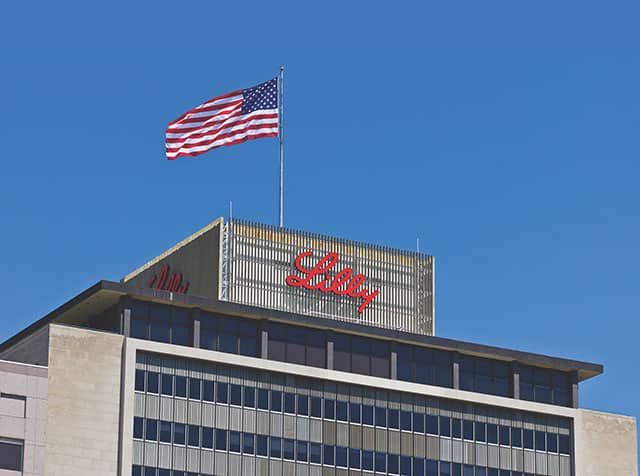
Eli Lilly’s cancer drug Cyramza has narrowly cleared an US Food and Drug Administration (FDA) advisory committee vote, with 6-5 voting in favour of its use in first-line, metastatic non-small cell lung cancer.
The Oncologic Drugs Advisory Committee of the FDA reviewed the safety and efficacy data from the phase 3 RELAY trial of Cyramza (ramucirumab) in patients with EGFR-positive NSCLC, which is also the basis for the application currently under review by the FDA.
That study evaluated Cyramza alongside Roche’s Tarceva (erlotinib), where it demonstrated media progression-free survival of 19.4 months, compared to 12.4 months in the placebo-plus-Tarceva arm.
The safety profile of the Cyramza treatment was consistent with what had been previously observed and the established safety profile of erlotinib, said Lilly. The most common adverse events were hypertension, dermatitis acneiform and diarrhoea.
Despite submitting only the PFS data – the more robust overall survival data was not yet available – the committee were ultimately satisfied with the risk-benefit profile of Cymraza.
Cyramza – a VEGF receptor 2 agonist – is already approved in a number of additional indications, including oesophageal cancer, gastric cancer, NSCLC after chemotherapy and colorectal cancer.
It’s most recent approval was in hepatocellular carcinoma (HCC) that expresses high levels of the biomarker alpha-fetoprotein (AFP). Around 40% of patients with advanced HCC tumours express high levels of AFP – these tumours tend to be more aggressive than those with low AFP expression.
Lilly is aiming for a first-line approval for Cyramza in NSCLC, where if approved it will face competition from AstraZeneca’s Tagrisso (osimertinib), which wass approved for EGFR-positive NSCLC back in 2018.
Although a positive recommendation from an advisory committee often leads to an approval, this isn’t always the case, especially since the expert panellists acknowledged that the combination of Cyramza and Tarceva “is associated with increased toxicity compared to placebo plus Tarceva”.
However, Lilly maintains that additional treatment options for this type of cancer are still needed, with Maura Dickler, Lilly Oncology’s vice president of late phase development commenting: “We believe in the clinical meaningfulness of the data from the RELAY trial, which targeted the VEGFR and EGFR pathways together.”
“We look forward to continuing to work with the FDA on this application to offer a new front-line treatment option for people with metastatic EGFR-mutated non-small cell lung cancer,” she added.




